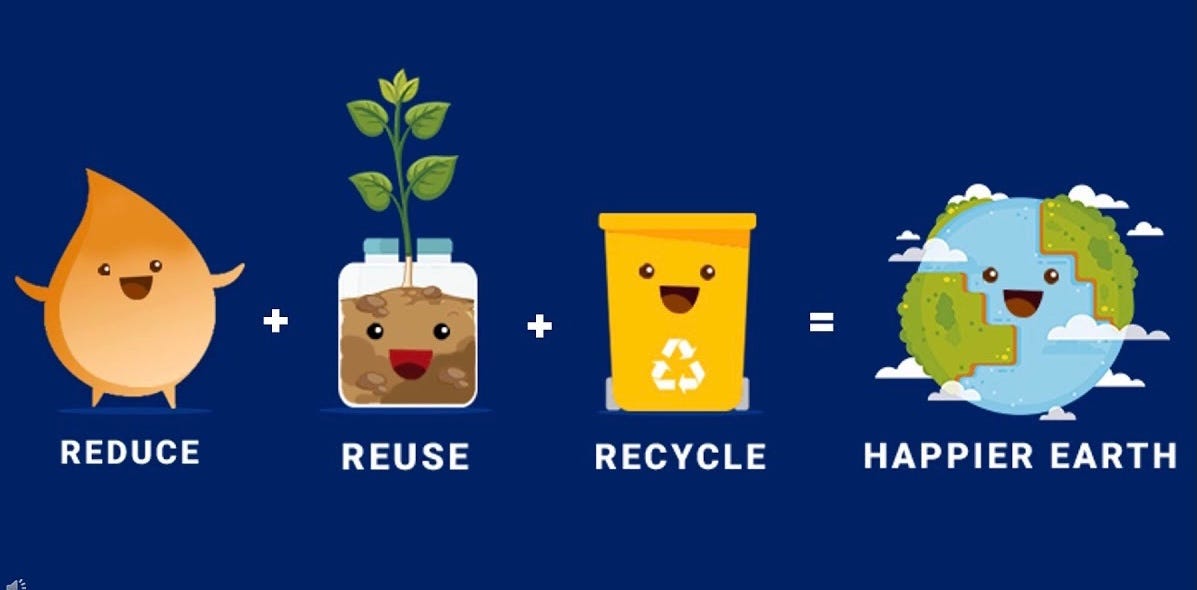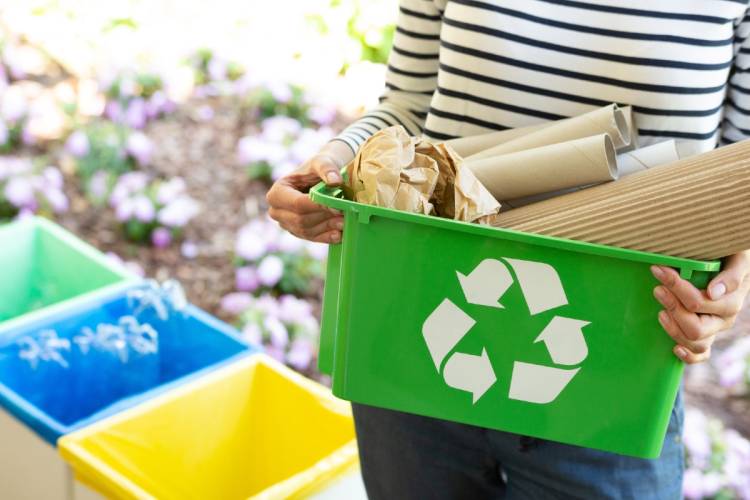Eco-friendly recycling is an essential practice for preserving the environment and reducing our carbon footprint. It involves reusing materials, minimizing waste, and making conscious choices to protect the planet. In today's world, where environmental concerns are at the forefront, adopting eco-friendly recycling practices has never been more critical.
Reduce, Reuse, Recycle

The mantra of "reduce, reuse, recycle" encapsulates the core principles of eco-friendly recycling. By reducing consumption, reusing items, and properly recycling materials, individuals can significantly minimize their environmental impact. Each aspect plays a crucial role in conserving resources and reducing waste.
Use Recyclable Materials
Choosing products made from recyclable materials is key to promoting eco-friendly recycling. Opting for items with recyclable packaging or materials that can be repurposed encourages a circular economy and reduces reliance on virgin resources. Materials like glass, paper, and certain plastics are commonly recyclable and should be prioritized in purchasing decisions.
Avoid Contaminating Recyclables
Contamination occurs when non-recyclable items are mixed with recyclables, rendering the entire batch unsuitable for recycling. To prevent contamination, it's essential to properly clean and sort recyclable materials before disposal. This ensures that the recycling process remains efficient and effective, preserving the quality of recycled materials.
Know What Can and Cannot Be Recycled

Understanding which items can and cannot be recycled is crucial for effective recycling practices. Common recyclables include paper, cardboard, aluminum cans, glass bottles, and certain plastics marked with recycling symbols. Conversely, items such as plastic bags, styrofoam, and food-contaminated materials should be kept out of recycling bins to prevent contamination.
Support Local Recycling Programs
Supporting local recycling programs is instrumental in promoting eco-friendly recycling on a community level. By participating in curbside recycling programs, dropping off recyclables at designated centers, or advocating for improved recycling infrastructure, individuals can contribute to sustainable waste management practices in their area.
Composting
Composting organic waste is another eco-friendly recycling method that reduces the amount of waste sent to landfills. Compostable materials such as food scraps, yard trimmings, and biodegradable products can be transformed into nutrient-rich soil amendments through composting. This process not only diverts waste from landfills but also enriches soil health and promotes sustainable agriculture.
Reduce Single-Use Plastics
Single-use plastics pose a significant environmental threat due to their persistence in the environment and harmful effects on wildlife. To mitigate this impact, individuals can reduce their consumption of single-use plastics by opting for reusable alternatives such as stainless steel water bottles, cloth shopping bags, and bamboo utensils. Making conscious choices to minimize plastic waste helps protect ecosystems and marine life.
Educate Others
Spreading awareness about eco-friendly recycling is essential for fostering widespread adoption of sustainable practices. Whether through social media advocacy, community workshops, or educational initiatives, individuals can play a vital role in educating others about the importance of recycling, waste reduction, and environmental conservation.
Lead by Example
Leading by example is perhaps the most powerful way to inspire others to embrace eco-friendly recycling. By integrating sustainable habits into daily life, such as recycling diligently, minimizing waste, and supporting eco-conscious businesses, individuals can influence others to follow suit. Small actions collectively have a significant impact on creating a more sustainable future for generations to come.
Conclusion
In conclusion, practicing eco-friendly recycling is paramount for mitigating environmental degradation and preserving natural resources. By implementing the ten tips outlined above, individuals can contribute to a healthier planet and a more sustainable future. Let's join forces to prioritize eco-friendly recycling and safeguard the Earth for generations to come.
FAQs
Q. Why is eco-friendly recycling important?
Ans: Eco-friendly recycling helps conserve resources, reduce pollution, and minimize waste sent to landfills, thereby mitigating environmental impact.
Q. What are some common recyclable materials?
Ans: Common recyclable materials include paper, cardboard, aluminum cans, glass bottles, and certain plastics marked with recycling symbols.
Q. How can I support local recycling programs?
Ans: You can support local recycling programs by participating in curbside recycling, dropping off recyclables at designated centers, and advocating for improved recycling infrastructure in your community.
Q. What is composting, and why is it beneficial?
Ans: Composting is the process of decomposing organic waste into nutrient-rich soil amendments. It helps divert waste from landfills and improves soil health for sustainable agriculture.
Q. What are some alternatives to single-use plastics?
Ans: Reusable alternatives to single-use plastics include stainless steel water bottles, cloth shopping bags, bamboo utensils, and glass food storage containers.

